

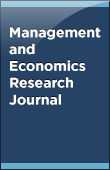
10.18639/MERJ.2021.1417190
Original Research Article
May 04, 2021
This research paper investigated the effect of communication on employee retention and its effects on organizational performance in mergers in Kenya. It involved a case study research design. It aimed at providing future merging organization with optimum employee retention strategies that can help in retaining competent, mission-critical, and highly valued employee through the merger process in order to achieve organizational performance after merger. The study’s target population included 535 employees of Quick Mart Limited. They included managers, executive staff, supervisors, and subordinate staff of six supermarket branches located in Nairobi. Stratified sampling technique was used in the study. Sample population was 30% of the target population. A total of 161 respondents made up the sample population. Questionnaires were used as the data collection tools. Questionnaires were delivered to the respondent physically at the supermarket branches. The researcher collected qualitative data from the respondents which were analyzed to bring to light the reality of the subject matter. A pilot study was conducted through 10% of the sample population. A total of 16 questionnaires were distributed to a part of the sample population, analyzed, tested for validity and reliability, and then corrected before all the other questionnaires were issued to the sample population. Validity and reliability of this research were realized through eliminating bias and increasing the researcher’s trustworthiness using triangulation. Descriptive data analysis was used in this study. Analysis of qualitative data was done through developing and applying codes, identifying themes, patterns, and relationships, and summarizing the data. The findings of the study were clearly presented through narrations, frequency tables, and charts. The researcher provided her conclusions on the study as well as recommendations for future research.
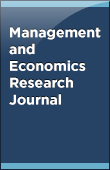
10.18639/MERJ.2021.1413412
Case Study
May 03, 2021
The gig economy is transforming societies across the globe. Freelancer.com promises experts representing every technical, professional, and creative field on its platform serving over 47 million users that project managers will find freelancers seeking work. This case study evaluates Freelancer.com, one of the leading freelance websites in the gig economy. Additionally, this research examines the merits of disruptive marketing as a strategic tool in the marketplace. With the potential growth of advanced technologies, Freelancer.com will find itself fending off other competitors. In the Covid-19 era and with the fierce financial crises across the globe, the research results are significant because the conclusions assist scholars and practitioners to better utilize freelance services like Freelancer.com found in the gig economy.
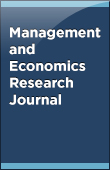
10.18639/MERJ.2021.9900041
Short Communication
Mar 31, 2021
Due to disruptive changes such as COVID-19, universities can achieve better student outcomes with a shift to a learner-centered strategy. During the Spring semester, faculty abruptly changed their teaching method of face-to-face format to mostly online education. With the ongoing impacts of disruptive changes, colleges and universities must make significant changes in order to recruit and retain this generation of students. This article examines the traits of today’s generation of students to provide recommendations on how administrators and faculty can better engage Generation Z for greater student outcomes. The result of this discussion is significant because the results can better assist administrators, faculty, and practitioners on how to inject innovative thinking in order to produce sustainability education for current and future students.
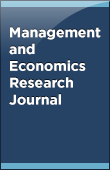
10.18639/MERJ.2021.9900038
Original Research Article
Mar 31, 2021
This study examines the experience of auditors in the higher echelons and stakeholders in top management paving the way to answer what are the differences of expectations that exist regarding the responsibilities of the independent auditors in the current business context. Through an interpretive approach, this research contributes to reflexivity. Seven professionals constitute the data corpus, and critical discourse analysis was used to draw upon their lived experiences. The results indicate a clear perception of difference in expectations among respondents who are auditors and the financial controllers, but with different intensities, thereby posing different societal impacts on the understanding of financial statements. The main discourses that surge are: a) discrepancy between the level of intensity by the interested parties; b) non-dissemination and comprehension of the standards that guide the work of the auditors; and c) identification of a possible gap derived from media and financial commentators exaggerating on expectation-gap recklessly. Also, d) Auditor`s mitigation of risks prudently tied to standards, and e) on the side of the controllers is the source of responsibility. This puts forth challenges for the broadening of the understanding and education about the expectation gap.
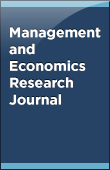
10.18639/MERJ.2021.9900039
Short Communication
Mar 03, 2021
Globalization in a broader sense and economic globalization in a more restricted sense has been under strain for some years now. During this time, rising anti-globalization sentiments, the U.S.-China trade war, and the Covid-19 pandemic hit the world. The spread of the pandemic quickly from country to country with a span of only a few months has been facilitated by globalization itself (in terms of greater mobility of people through improved travel, tourism, and other forms of people movement). This article focuses on the current trend in globalization as it is being severely strained and tested by several events such as the rising nationalism, U.S.-China Trade war, Covid-19 pandemic, and several other stressors which are discussed in the paper. The paper concludes with the optimistic note that the Covid-19 pandemic may be controlled with the arrival of the vaccine, the world economy will recover, and the current strains on globalization lifted so that the progress to globalization will soon return to a somewhat normal path.
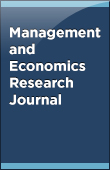
10.18639/MERJ.2021.9900034
Original Research Article
Feb 27, 2021
Scant amount of research led to conduct an empirical investigation with the purpose of identifying the effect of supervisor’s green commitment on employee green work behavior. While addressing this gap in the extant literature, the study made a methodological contribution by validating a scale for green work behavior. A sample of 96 machine operators from often ready to wear apparel-manufacturing firms in Katunayake and Pallekele industrial zones in Sri Lanka responded to a survey. The collected data were analyzed with the hierarchical regression analysis. The results reported that the commitment demonstrated by supervisors in terms of their dedication to the environmental sustainability and willingness to engage with pro-environmental behavior fosters employees to engage with green work behavior. The outcomes of the study provide implications to psychological contract theory and the social sustainability theory. In terms of policy implications, the study proposes decision makers to implement green commitment- and green behavior-enhancing human resource management (HRM) practices. The policy makers should introduce green commitment-enhancing HR practices for their employees such as rewards, recognition programs, inclusion of green criteria in performance management, as well as green training. Consequently, managerial and supervisory level employees will commit on achieving environmental sustainability goals and assist other employees to perform their green work. The limitations of the study and directions for future studies are also discussed.
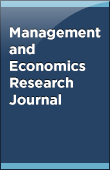
10.18639/MERJ.2021.9900037
Short Communication
Jan 30, 2021
Not applicable.
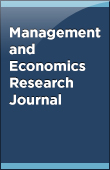
10.18639/MERJ.2021.9900033
Original Research Article
Jan 29, 2021
In the contemporary organizational environment where there is no guarantee for long term employment, the employees are responsible for managing their own careers by the involvement of a range of career self-management behaviors. In such an environment, whether the employees are committed to their organizations is questionable. Therefore, the purpose of this study was to investigate whether there is an effect of employee career self-management behaviors on their commitment. An online survey was distributed among a random sample of 200 managerial level employees of 20 BPO firms. With a response rate of 47%, 94 managerial level employees reported the effects of career selfmanagement behaviors such as networking behavior, visibility behavior, and mobility behavior on employee commitment. Based on multiple hierarchical regression analysis, it was found that the networking and visibility behaviors promote employee affective commitment and normative commitment whereas the externally oriented mobility behavior results in lowering the employee affective attachment and normative commitment. These findings provide implications to the theory of proactive behavior and the social cognitive career theory. In terms of managerial implications, the firms should create an organizational culture that is conducive for employees to involve with career selfmanagement behaviors aimed at furthering careers within the organization. The limitations and the implications of the study for future research are also discussed.
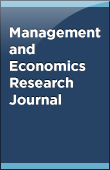
10.18639/MERJ.2020.eS5MNR
Editorial Note
Dec 31, 2020
Special Issue S5: “BRICS: The Emerging Block”
BRICS has emerged as a promising club of emerging economies with a substantial contribution to the global trade and economy (Iqbal et al., 2015). According to the latest statistics, the total Gross Domestic Product (GDP) of BRICS countries in 2019 was US$ 21,154,265 million which is 53% of the total GDP of G7 countries (Canada, France, Germany, Italy, Japan, UK, USA) and it is expected to go up in the coming years (UNCTAD, 2021). The annual average of the GDP growth for BRICS in 2019 was 2.78% (Brazil 1%, China 6.1%, India 5.3%, Russia 1.3%, South Africa 0.19%) while for the G7 countries it was 1.17% (UNCTAD, 2021a). The trade balance expressed in terms of GDP for BRICS was 2.2% in 2019 while for the G7 countries it was (-) 0.42%, again suggesting a significant contribution of BRICS in the International Trade (UNCTAD, 2021b). This shows the potential of BRICS to outpace G7 countries in certain indicators. There can be no better time for publishing on BRICS studies when a Covid19 affected world is looking towards BRICS for more than one reason. BRICS cooperation in a multitude of domains (Luckhurst, 2013), from healthcare to the digital payments system, has made it a hot cake in multilateral cooperation studies (Zhongxiu and Qingxin, 2020). There can be no denial about the potential economic might of BRICS economies, and as studies suggest it will continue to bolster (Nayyar, 2020). Published literature suggests the case for BRICS as an emerging block (Iqbal and Rahman, 2016; Iqbal and de Araújo, 2015), though there are studies questioning the existence of a block (Beausang, 2012). The absence of a ratified agreement does not indicate the absence of a block. The cooperation among BRICS is proving to serve the purpose of a block without creating a complex legal structure. Cooperation in the emerging areas among BRICS countries is also taking its own pace such as Trade (Rahman, 2016; Rahman et al., 2020), Climate Change (Rahman and Turay, 2018), Sustainable Development Goals, Smart Cities, Industrialization 4.0 et cetera. Considering the increasing significance of BRICS countries in the Global Economy and its competitiveness (Loo and Iqbal, 2019), there was a need to deliberate on BRICS as an emerging block. The special issue in hand is the outcome of such deliberations, having a variety of articles focusing on different dimensions of BRICS issues and cooperation.
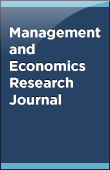
10.18639/MERJ.2020.9900026
Review Article
Dec 28, 2020
Special Issue S5: “BRICS: The Emerging Block”
The connections among provincial and worldwide organizations and local foundations are significant and questionable in worldwide administration. During the nineties, through the development of the European mix, making of the North American Free Trade Area, and different territorial participation activities in the Asia-Pacific district, researchers and policymakers thought about whether these local alliances would piece the worldwide administration structure. The World Bank Group, a single worldwide establishment comprises a few loaning arms and numerous provincial foundations. Indeed, there are more than 250 multilateral advancement offices, including in excess of twenty Multilateral Development Banks (MDBs). But, because of the notability of the issue of the relationship among various MDBs, this goes in front of the making of two new MDBs i.e., the New Development Bank (NDB) and the Asian Infrastructure Investment Bank (AIIB). The NDB is a joint endeavor among the BRICS nations (Brazil, Russia, India, China, and South Africa), which tries to support infrastructure and sustainable development in creating nations. Keeping in view, the present study assesses various prospective benefactions and imperils and proposes manners by which the MDBs can append their collaboration in development financing. The article explores how BRICS adds to worldwide economic governance which centers on advancement, speculation, trade, investment strategies, welfare, and security. The researcher also highlights India’s role in BRICS for improvising the global economic governance. The paper will stress a fastidious writing survey from a complete point of view in order to express the objectives of the research. This is subjective investigation research and the examination depends on the Secondary Data assembled from different sources. The commitment of this investigation will help various specialists with an understanding of the involvement of BRICS and New Multilateral Development Bank in changing the world economy and to worldwide turn of events.
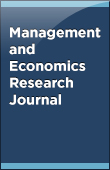
10.18639/MERJ.2020.9900030
Review Article
Dec 25, 2020
Special Issue S5: “BRICS: The Emerging Block”
Beijing’s economic diplomacy has, since the dawn of the millennium, sought to reconfigure the world by championing a new economic order that is predicated on the principles of multipolarity and fairness. The last policy conference of the CPC shed some light on how these policy ideas are to be carried out by Beijing and how they will bear on her relationship with countries from the Global South. This paper considers the policy statements of the CPC during its 19th Congress held in October 2017 as a sneak peek into the future of China’s economic diplomacy and the implications for Africa’s economic future from the context of Brazil, Russia, India, China, and South Africa (BRICS). It argues that China’s role as the leader of the BRICS fulcrum reflects her goal to have a global influence that will see erstwhile economic backwaters such as Africa turning their focus away from the West to the East in search of sustainable solutions to their economic challenges.
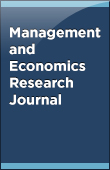
10.18639/MERJ.2020.9900000
Original Research Article
Nov 30, 2020
This research aimed to assess the impact of five major indicators of institutional and governance quality on economic performance in 12 African and Asian countries2. These indicators include rule of law, political stability, government effectiveness, government regulatory quality, and corruption control indicator, all taken from the World Bank database on Worldwide Governance Indicators. The study employs annual panel data cross-section analysis using a structural equation model, for the sample period 2012 - 2017. The share of the agriculture sector as a ratio of GDP for each country used as a dependent variable, and the five institutional and governance quality indicators as explanatory variables. Our finding shows the rule of law indicator has a significant impact on the other four indicators. That is to say, improvement in the rule of law induces less corruption, improvement in government effectiveness, improvement in regulatory quality, and improvement in political stability. Also, our finding indicates a one-unit decrease in corruption, increase economic growth by 0.17 units, and one-unit improvement in government effectiveness enhance economic growth by 0.15 units. The findings of the paper also indicate if the group of the countries in the sample, able to improve their institutional and governance quality to a non-negative zero scores level, they can sustain an economic growth rate of 8% on average per year.
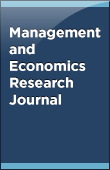
10.18639/MERJ.2020.9900029
Short Communication
Nov 30, 2020
Due to disruptive changes such as COVID-19, universities can achieve better student outcomes with a shift to a learner-centered strategy. During the Spring semester, colleges and universities were forced to operate remotely due to COVID-19. With that said, faculty abruptly changed their teaching method of face-to-face format to mostly online education. According to a Chronicle survey of faculty members and academic administrators, 60% of faculty and administrators said that the COVID-19 semester was much worse. With the second wave of COVID-19 predicted by some health authorities, faculty needs to shift toward learner-centered instruction for greater student outlines especially when operating remotely. This article examines how faculty can infuse learner-centered instruction and provides some best practices to create better student outcomes.
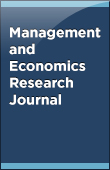
10.18639/MERJ.2020.9900024
Review Article
Oct 30, 2020
Special Issue S5: “BRICS: The Emerging Block”
The paper focuses on BRICS countries' energy policies, as they are promising emerging economies and also some of the largest countries in the world, which together account for almost 40% of the world’s population. In addition, the energy sector has a strong importance for these countries. BRICS countries are an intrinsic part of the global efforts and the overall result of 2030 and beyond. This paper will analyze: How have BRICS nations been addressing environmental issues in their energy policies and strategies? What are their goals and pledges? To what extent have they met their established goals? And how much further – within possible – have they yet to go?
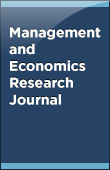
10.18639/MERJ.2020.9900028
Original Research Article
Oct 30, 2020
Special Issue S5: “BRICS: The Emerging Block”
This study is an attempt to analyze the significance of India’s trade relations with other BRICS nations in terms of sustainability. To examine the sustainability of India in BRICS nations, a time duration ranging between 1995 to 2018 has been taken. The time horizon has been divided into two parts as pre- and post-formation of the BRICS group, which makes it easier to determine the sustainability of India in this organization. The question of sustainability arises because of the heterogeneity in the character of all the member countries of BRICS. Statistical tools like trade intensity index and correlation have been used to understand the degree of intensity of trade and inter-dependency of member countries in terms of trade. The findings of the study suggest that there is great mutual dependency among the BRICS nations except for China. On the basis of an analysis of trends in trade and trade intensity, it can be concluded that the effectiveness of BRICS is limited and several questions can be raised on the significance of BRICS as a group.